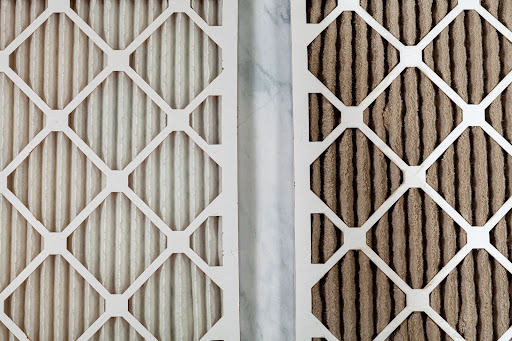If you’ve ever stood in the hardware store aisle staring at rows of air conditioning and furnace filters, scratching your head at the numbers on the labels, you’re not alone. One of the most important — yet least understood — terms when it comes to indoor air quality and HVAC systems is “MERV rating.” But what does MERV mean in air filters? And more importantly, what MERV rating should you use in your home?
Let’s break it all down in plain language so you can breathe easier, literally and figuratively!
What Does the MERV Rating Mean?
MERV stands for Minimum Efficiency Reporting Value. It’s a scale designed by the American Society of Heating, Refrigerating and Air-Conditioning Engineers (ASHRAE) to rate the effectiveness of air filters. The MERV rating ranges from 1 to 20 and indicates how well a filter can trap particulates like dust, pollen, smoke, bacteria, and pet dander.
In short: the higher the MERV number, the better the filtration. But better isn’t always better, especially when it comes to airflow and your HVAC system’s efficiency.
How Do MERV Ratings Work?
Each MERV level is tested in a laboratory setting to see how effectively it captures particles of varying sizes. Lower MERV filters (1–4) can catch larger particles like lint and carpet debris, while higher-rated ones (13–16) can trap smaller contaminants such as bacteria and viruses. Ratings above 16 are usually reserved for cleanrooms and hospitals, where ultra-high filtration is critical.
Here’s a quick look at what the ratings mean for typical households:
- MERV 1–4: Basic filtration; captures large particles like dust and pollen. Often made of fiberglass, these filters are affordable but offer minimal protection.
- MERV 5–8: Better at capturing mold spores, dust mites, and pet dander. This level is common in standard residential homes.
- MERV 9–12: Captures even smaller particles, including fine dust, smoke, and some bacteria. These filters are ideal for families with asthma or allergies.
- MERV 13–16: Removes up to 95% of particles, including viruses and spray paint fumes. These filters are best for those highly concerned with air pollution and indoor air quality.
What MERV Rating Do I Need for My Home?
This is the big question: what MERV rating is best for home use? It depends on your family’s health, your HVAC system’s capacity, and your indoor environment. If you’re dealing with pets, wildfire smoke, or cooking odors, a higher MERV filter might make a big difference. But remember, a super high MERV filter can also restrict airflow, causing your heat pump or central air conditioning unit to work harder — and burn more energy.
Here’s a quick guide to help:
- MERV 5–8: Great for homes without pets or allergy issues. Balances filtration and airflow well.
- MERV 9–12: Ideal if you have allergies, asthma, or own pets. Traps finer particles and improves ventilation quality.
- MERV 13–16: Excellent for households near wildfires, with severe health concerns, or where air pollution is a major issue. Just make sure your HVAC system can handle the reduced airflow.
Still unsure which option is right for you? Reach out to Quality Heating & Cooling to discuss your indoor air quality in Canton, OH. We’ll help you figure out what MERV filter you need based on your home size, ductwork, and other conditions.
Why the Right MERV Filter Matters
Think of your air filter as a gatekeeper — it decides what stays out of your lungs and what passes through. A quality filter not only protects your health from particles like smog, mite debris, pollen, and dander, but also protects your HVAC system from damage. A clogged or inefficient filter can lead to restricted airflow, increased energy consumption, and premature wear on your furnace or air conditioning components.
Plus, the right filter improves the number of air changes per hour, helping to remove irritants and cooking odors faster. That means cleaner air and more comfortable living all year round.
What About HEPA Filters?
You’ve probably heard of HEPA filters and might be wondering how they compare. HEPA filters exceed even the highest MERV ratings, capturing 99.97% of particles as small as 0.3 microns. That includes viruses, bacteria, mold, and smoke. However, not all residential HVAC systems can accommodate HEPA filters without serious modifications.
If you’re looking for hospital-grade filtration without compromising your system, MERV 13–16 filters are often the sweet spot for homes. You could also consider adding a dedicated air purifier or upgrading your ventilation system for additional protection.
Final Thoughts: Choosing the Right MERV Rating
The MERV rating is your filter’s scorecard, showing how well it blocks everything from dust to bacteria. But just like shoes, one size doesn’t fit all. The ideal MERV rating for your home depends on your HVAC system, your family’s needs, and even your local air quality.
If you’re not sure whether to go with MERV 8, MERV 11, or even something higher, give the pros at Quality Heating & Cooling a call. We’ll assess your setup, recommend the best solution, and make sure your system is running at top efficiency without sacrificing air quality.
Breathe easier today — contact us by phone or use our online form to schedule an air filtration consultation or HVAC check-up in Canton, OH. We’re here to help your family stay comfortable, healthy, and energy-efficient year-round!

